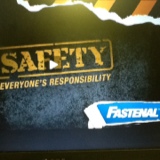Title Page
-
Company Name
-
Location
-
Trainer/Facilitator
-
Date of Training
Trainee Information
-
Name
-
Employee ID/Certification Number
Forklift Training and Assessment
-
Provide an overview of the forklift's purpose, applications in the workplace, and its significance.
-
Introduce the steps to performing pre-operational checks.
-
Trainee can perform pre-operational checks independently.
-
Trainee knows how to inspect the forklift for safety before each use.
-
Trainee knows how to complete and document pre-operational checklists.
-
Discuss theoretical knowledge and safety guidelines related to forklift operations.
-
Trainee understands and can explain safety guidelines and regulations.
-
Trainee can discuss theoretical aspects of forklift operation, including load capacity and stability.
-
Train on proper load handling techniques, emphasizing load positioning, weight distribution, and methods to prevent load shifts.
-
Trainee can properly position loads on the forks.
-
Trainee can distribute loads to ensure safe handling and prevent load shifts.
-
Teach how to operate the forklift safely in different scenarios, including steering, braking, acceleration, and navigating tight spaces.
-
Trainee can perform a 360-degree assessment before moving the forklift.
-
Trainee can effectively operate the forklift, demonstrating safe steering, braking, and acceleration.
-
Trainee can navigate tight spaces and obstacles while maintaining control.
-
Cover safe fueling or battery charging practices and basic maintenance tasks, including checking oil levels and tire conditions.
-
Trainee knows and demonstrates the procedures for fueling, recharging, and basic maintenance tasks, such as checking oil and tires.
-
Emphasize the importance of maintaining awareness of pedestrians, using horns when necessary, and communicating effectively when working near them.
-
Trainee consistently maintains a safe distance from pedestrians.
-
Trainee demonstrates awareness of pedestrians and communicates effectively with them while operating the forklift.
-
Train on how to respond to common emergency situations, including equipment malfunctions, fire incidents, and accidents.
-
Trainee knows how to respond to common emergencies, such as equipment malfunctions, fires, and accidents.
-
Trainee can effectively execute emergency procedures to ensure the safety of themselves and others.
-
Discuss the importance of periodic refresher training and maintaining ongoing safety awareness for experienced forklift operators.
-
Emphasize the need to maintain proper records of training sessions and certifications to demonstrate compliance with training requirements.
Assessment and Completion
-
Based on the trainee's performance, they have successfully completed the forklift training program.
-
Trainee's Name and Signature
-
Trainer's Name and Signature









